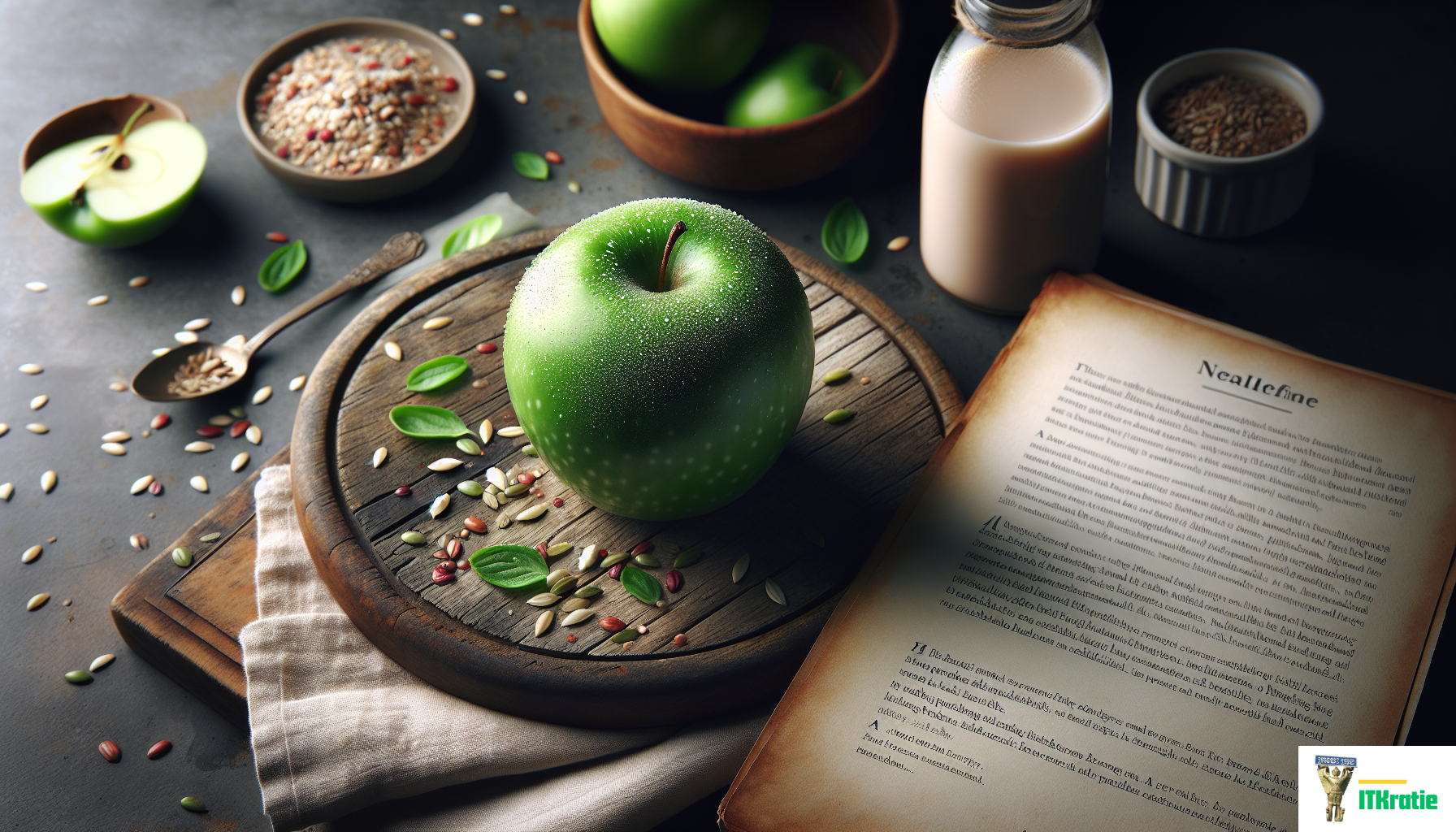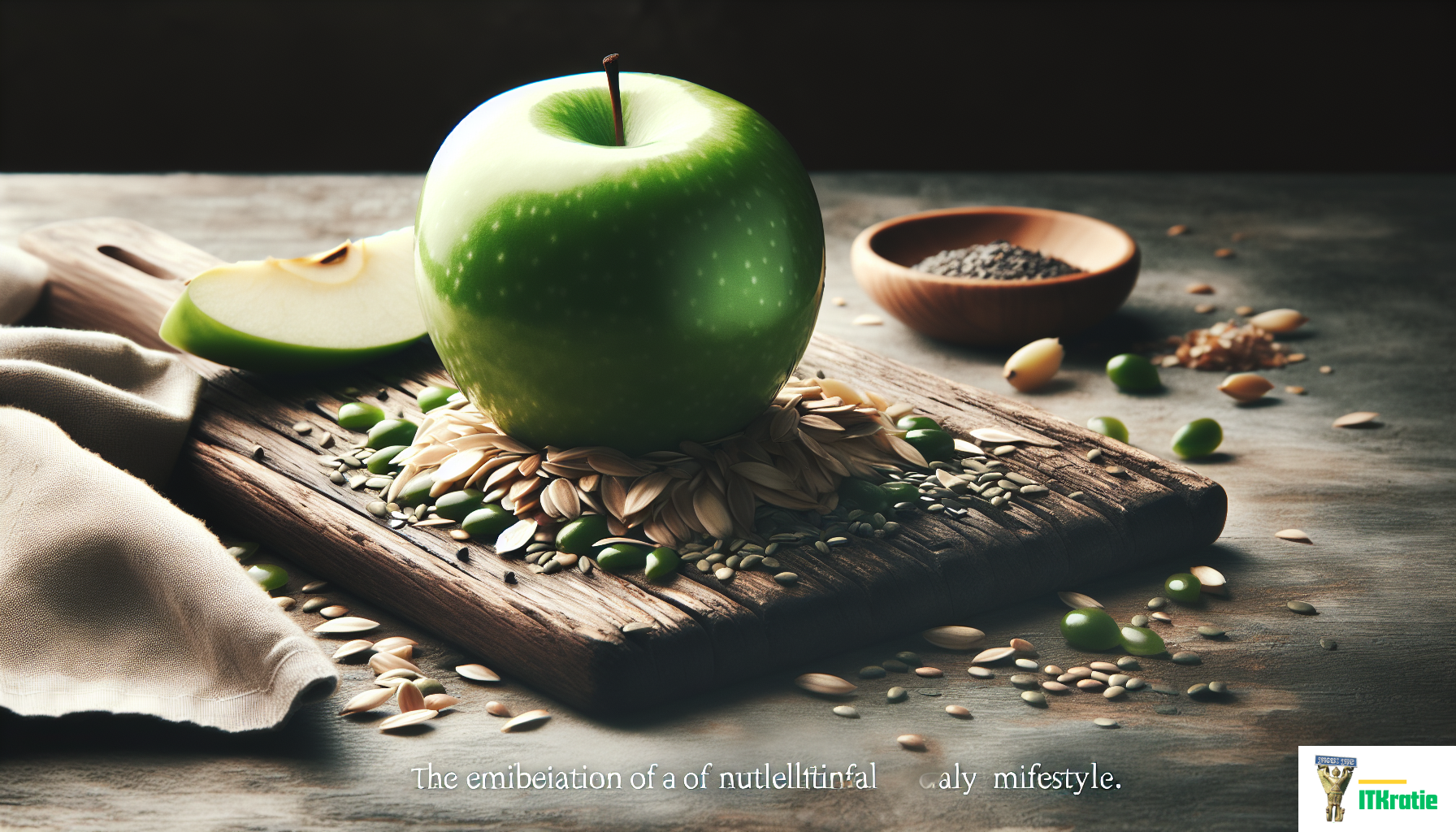Imagine waking up each morning feeling energized and motivated, ready to tackle whatever the day throws at you. In this fast-paced world, we often neglect our health and well-being, but it’s time to make a change. Establishing a healthy daily routine can have a profound impact on your physical and mental well-being, helping to improve productivity, reduce stress, and enhance overall happiness. By incorporating small yet significant habits into your everyday life, you can transform your routine into a foundation of positivity and success. Let’s explore the key components of a healthy daily routine and discover how you can create a life filled with vitality and balance.

Exercise
Physical activity
Physical activity is an essential component of a healthy daily routine. By engaging in regular exercise, you can improve your physical fitness, boost your energy levels, and promote a positive mood. There are various forms of physical activity to choose from, including cardio exercises like running and cycling, strength training exercises such as weightlifting, and flexibility exercises like yoga or pilates. Incorporating different types of physical activity into your routine can help you engage different muscle groups and achieve overall fitness.
Types of exercise
When it comes to exercise, variety is key. It’s important to include a mix of cardio, strength training, and flexibility exercises in your routine to ensure comprehensive fitness. Cardiovascular exercises, such as brisk walking, jogging, or swimming, help improve heart health, increase endurance, and burn calories. Strength training exercises, like lifting weights or using resistance bands, build muscle strength and improve bone density. Flexibility exercises, such as stretching or yoga, enhance your range of motion, improve posture, and reduce the risk of injury.
Benefits of exercise
Regular exercise offers numerous benefits for your physical and mental well-being. Engaging in physical activity can help manage weight, reduce the risk of chronic diseases like heart disease and diabetes, and enhance overall cardiovascular health. Exercise also promotes better sleep, increases energy levels, and boosts your mood by releasing endorphins, the “feel-good” hormones. Moreover, incorporating exercise into your routine can improve cognitive function and reduce the risk of mental health conditions such as depression and anxiety. It’s important to find activities you enjoy to make exercise a sustainable and enjoyable part of your daily routine.
Nutrition
Balanced diet
Maintaining a balanced diet is an essential aspect of a healthy daily routine. A balanced diet involves consuming a variety of nutrient-rich foods that provide the required vitamins, minerals, and macronutrients for optimal health. Incorporating whole grains, lean proteins, fruits, vegetables, and healthy fats into your meals ensures that your body receives a diverse range of nutrients. Avoiding excessive intake of processed foods, sugary snacks, and beverages high in added sugars is crucial for maintaining a balanced diet.
Importance of hydration
Staying hydrated throughout the day is vital for maintaining good health. Water is essential for various bodily functions, including regulating body temperature, aiding digestion, and transporting nutrients to cells. It is recommended to drink at least eight glasses of water per day, but individual hydration needs may vary based on factors such as activity level, climate, and personal health. In addition to water, consuming other hydrating beverages such as herbal teas or infused water can contribute to overall hydration.
Meal planning
Meal planning plays a significant role in ensuring a healthy daily routine. By planning your meals in advance, you can make healthier choices, save time, and reduce the likelihood of relying on fast food or unhealthy snacks. Start by creating a weekly meal plan, considering your nutritional needs and personal preferences. Make a shopping list based on your meal plan and choose fresh, nutritious ingredients. Preparing meals in batches or using meal prep techniques can also help save time and ensure you have healthy options readily available throughout the week.
Sleep
Establishing a sleep schedule
Establishing a consistent sleep schedule is vital for maintaining optimal health and well-being. Aim to go to bed and wake up at the same time every day, even on weekends. This routine helps regulate your body’s internal clock, making it easier to fall asleep and wake up naturally. It’s recommended for adults to aim for 7-9 hours of sleep per night, although individual needs may vary. Consistency in your sleep schedule helps improve sleep quality, enhance cognitive function, and reduce the risk of sleep disorders.
Sleep duration
Getting enough sleep is crucial for your overall health. During sleep, the body repairs and rejuvenates itself, strengthening the immune system, improving memory consolidation, and supporting emotional well-being. Inadequate sleep can lead to various health issues like fatigue, decreased concentration, and increased susceptibility to illnesses. Strive to prioritize sleep and ensure you allocate enough time for restful sleep each night to reap the benefits of a well-rested mind and body.
Creating a sleep-friendly environment
Creating a sleep-friendly environment can dramatically improve the quality of your sleep. Designate your bedroom as a peaceful and comfortable space by keeping it cool, dark, and quiet. Use blackout curtains or an eye mask to block out any external light, and consider wearing earplugs or using a white noise machine to minimize noise disruptions. Invest in a comfortable mattress and pillow that support your body’s needs, as physical comfort directly affects sleep quality. Additionally, limit the use of electronic devices before bed, as the blue light emitted can suppress melatonin production and interfere with sleep.
Mental health
Stress management
Taking care of your mental health is essential for overall well-being. Stress management techniques can help you cope with everyday challenges and promote a sense of calm and balance. Engaging in activities like deep breathing exercises, practicing mindfulness or meditation, and participating in hobbies or activities that bring you joy can effectively reduce stress levels. Additionally, ensuring you have healthy boundaries, managing time effectively, and seeking support from loved ones or professionals can contribute to effective stress management.
Meditation and mindfulness
Meditation and mindfulness practices have been proven to have significant benefits for mental health. Engaging in regular meditation or mindfulness exercises can help reduce anxiety, improve focus, increase self-awareness, and promote a sense of overall well-being. Start by allocating a few minutes each day to sit quietly, focus on your breath or engage in guided meditation. Over time, you can gradually increase the duration of your meditation practice, leading to enhanced mental clarity and emotional resilience.
Social connections
Maintaining positive social connections is crucial for mental and emotional well-being. Building strong relationships with friends, family members, and the community can provide a sense of belonging, support, and companionship. Make an effort to engage in social activities, whether it’s having a conversation with a friend, participating in group activities or joining clubs that align with your interests. Additionally, spending quality time with loved ones, expressing gratitude, and showing kindness towards others can foster positive social connections and boost your overall happiness.

Hygiene
Dental care
Proper dental care is an essential part of maintaining good overall hygiene. Brushing your teeth at least twice a day using fluoride toothpaste helps remove plaque and prevent cavities. It’s also important to floss daily to remove food particles and plaque from areas that a toothbrush cannot reach. Regular dental check-ups and cleanings with a dentist or dental hygienist are crucial to identify and address any oral health issues early on. Additionally, adopting healthy habits like avoiding tobacco products and limiting sugary foods and beverages can contribute to optimal dental health.
Personal hygiene
Maintaining personal hygiene is important for both physical health and self-confidence. Regularly washing your hands with soap and water for at least 20 seconds helps prevent the spread of germs and reduces the risk of infections. Showering or bathing regularly using a mild soap or body wash helps keep the skin clean and free from dirt, oils, and sweat. Other personal hygiene practices include keeping nails trimmed and clean, brushing and caring for hair, and wearing clean clothes. By practicing good personal hygiene, you can promote overall health and well-being.
Skin care
Caring for your skin is an essential part of maintaining good hygiene and overall health. Start by establishing a skincare routine that suits your skin type and addresses your specific concerns. This typically involves cleansing the skin, moisturizing, and protecting it from the sun with sunscreen. Exfoliating regularly helps remove dead skin cells and promotes cell turnover. Additionally, consuming a balanced diet rich in fruits, vegetables, and antioxidants supports healthy skin. Remember to stay hydrated to maintain skin hydration from within. Taking care of your skin promotes a healthy appearance and enhances your overall sense of well-being.
Time management
Setting goals
Setting goals is a fundamental component of effective time management. By defining clear and achievable goals, you can prioritize your tasks, stay focused, and make progress towards what matters most to you. Set specific, measurable, attainable, relevant, and time-based (SMART) goals that align with your values and aspirations. Break down larger goals into smaller, actionable steps that can be accomplished within a given timeframe. Regularly evaluate and adjust your goals as needed to ensure they remain relevant and motivating.
Prioritizing tasks
Prioritizing tasks is key to managing time efficiently and effectively. Identifying tasks that are urgent and important helps you allocate time and resources appropriately. Use tools like to-do lists, calendars, or task management apps to organize and prioritize your tasks. Consider using time-blocking techniques to allocate specific time slots for different activities or types of tasks. By prioritizing tasks, you can optimize your productivity, reduce stress, and ensure that important obligations are fulfilled.
Avoiding multitasking
While multitasking may seem efficient, it can actually hinder productivity and quality of work. Instead of trying to juggle multiple tasks simultaneously, focus on one task at a time. Research suggests that mono-tasking improves focus, reduces errors, and enhances overall performance. Minimize distractions by creating a dedicated workspace, turning off notifications on electronic devices, and setting boundaries to protect your focus. By avoiding multitasking and devoting your full attention to each task, you can work more effectively and achieve better outcomes.
Self-reflection
Journaling
Journaling is a powerful tool for self-reflection and personal growth. Setting aside time to write down your thoughts, feelings, and experiences allows you to gain insight and self-awareness. You can start by simply writing about your day, exploring your emotions, or expressing gratitude. Reflect on any challenges you’ve faced, lessons learned, and areas you’d like to improve. Regular journaling can help reduce stress, clarify your thoughts, and provide an outlet for self-expression. Explore different journaling techniques such as gratitude journals, goal-setting journals, or stream-of-consciousness writing to find what resonates with you.
Practicing gratitude
Practicing gratitude can significantly enhance your overall well-being and happiness. Taking time each day to reflect on the things you are grateful for can shift your focus towards positivity and appreciation. This practice helps cultivate a mindset of abundance, improves resilience, and fosters better relationships. Consider keeping a gratitude journal, writing down three things you’re grateful for each day. Alternatively, you can express gratitude verbally or mentally throughout the day, acknowledging the small moments or acts of kindness that bring joy to your life.
Self-care activities
Engaging in self-care activities is crucial for maintaining balance and promoting self-wellness. Self-care encompasses activities that prioritize your physical, mental, and emotional well-being. This can include activities like taking a relaxing bath, practicing yoga or meditation, engaging in hobbies you enjoy, or spending quality time alone. It’s important to identify activities that recharge and rejuvenate you. Make self-care a non-negotiable part of your daily routine to safeguard your overall health and ensure you have the energy and resilience to navigate life’s challenges.
Breaks and downtime
Importance of breaks
Taking regular breaks is essential for maintaining productivity, focus, and overall well-being. Short breaks throughout the day help prevent mental fatigue, improve concentration, and enhance work performance. Incorporate micro-breaks every hour or so, allowing yourself to stretch, take a short walk, or engage in a brief relaxation technique. Additionally, longer breaks, such as lunch or leisure breaks, provide an opportunity to recharge, socialize, or engage in activities that bring you joy. Recognize that breaks are not a waste of time but necessary for sustainable productivity and maintaining a healthy work-life balance.
Finding hobbies
Engaging in hobbies or activities you love is an important aspect of self-care and personal fulfillment. Hobbies allow you to explore your interests, cultivate new skills, and provide a sense of enjoyment and accomplishment. Whether it’s painting, playing a musical instrument, gardening, or participating in sports, finding hobbies that engage and inspire you can improve overall well-being. Make time for your hobbies in your daily routine to ensure you have an outlet for creativity, relaxation, and personal growth.
Enjoying leisure time
Allocating time for leisure activities is crucial for finding balance in your daily routine. Leisure time involves engaging in activities solely for enjoyment and relaxation, free from work or obligations. This can include activities like watching a movie, reading a book, going for a walk in nature, or spending time with loved ones. Prioritize leisure time in your schedule to recharge, unwind, and experience joy. By integrating leisure activities into your daily routine, you can enhance your overall happiness and well-being.
Productivity
Creating a daily schedule
Creating a daily schedule is a valuable tool for boosting productivity and achieving your goals. Start by mapping out your day, allocating specific time blocks for different activities and tasks. Consider your natural energy rhythms and individual preferences when determining the optimal time for certain activities. Incorporate breaks, self-care, and leisure activities into your schedule to ensure a well-rounded day. Use digital or physical tools to track your schedule and hold yourself accountable. Regularly review and adapt your schedule as needed to optimize productivity and maintain a healthy balance.
Eliminating distractions
Minimizing distractions is essential for maintaining focus and productivity. Identify common distractions in your environment and take proactive steps to eliminate or reduce them. This may include turning off notifications on your phone, closing unnecessary browser tabs, or creating a designated workspace free from distractions. Implementing time management techniques such as the Pomodoro Technique, which involves working in focused bursts followed by short breaks, can help combat distractions and increase productivity. By creating a distraction-free environment, you can enhance your ability to concentrate and accomplish tasks efficiently.
Building focus
Building focus is a skill that can be developed through intentional practices and habits. Start by setting clear intentions for each task or activity to increase focus and motivation. Minimize multitasking and allocate dedicated time to work on one task at a time. Enhance your ability to concentrate by reducing mental clutter through techniques such as meditation or deep breathing exercises. Creating a conducive work environment, free from distractions, can also significantly improve focus. Regular practice and deliberate effort will help build the habit of sustained focus, ultimately increasing productivity and efficiency.
Goal setting
SMART goals
Setting SMART goals is an effective strategy for achieving meaningful and attainable objectives. SMART goals are Specific, Measurable, Attainable, Relevant, and Time-based. By following this framework, you can clarify your intentions, define clear actions, and track progress effectively. For example, instead of setting a vague goal like “exercise more,” a SMART goal would be “run for 30 minutes three times per week for the next two months.” SMART goals provide direction, motivation, and a sense of accomplishment when successfully achieved.
Action plans
Developing action plans is essential for successfully reaching your goals. Once you have defined your SMART goals, break them down into smaller, actionable steps. Each step should have a clear timeline and be linked to your overall goal. Consider any resources or support you may need to accomplish each step and identify potential obstacles along the way. By creating a detailed action plan, you can effectively manage your progress and stay on track towards achieving your goals.
Tracking progress
Tracking progress is crucial for maintaining motivation and ensuring you stay on course towards your goals. Regularly monitor your progress using milestones and measurable indicators specific to your goals. This may involve keeping a journal, using a habit-tracking app, or using a calendar to visually track your achievements. Celebrate your successes along the way, no matter how small, and use any setbacks or challenges as learning opportunities. By tracking your progress, you can stay focused, make necessary adjustments, and maintain momentum towards the achievement of your goals.
